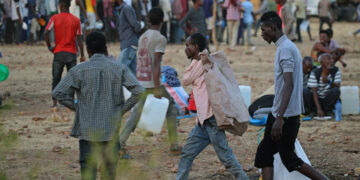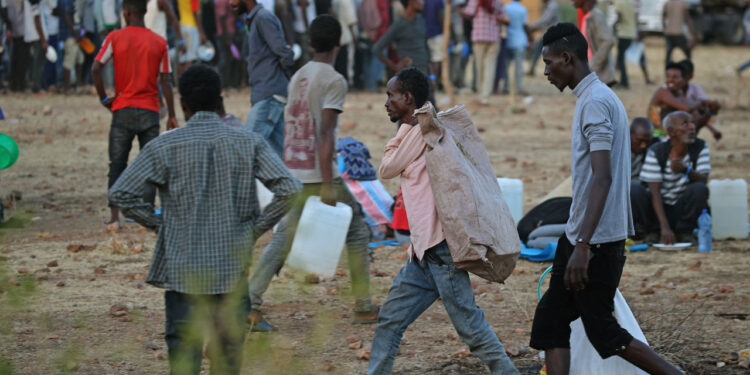By Ebi Kesiena
Nearly 40 percent of people in Ethiopia’s Tigray are suffering “an extreme lack of food” in the face of an extended de-facto blockade of the war-hit region, a UN agency said on Friday.
The dire assessment published by the World Food Programme (WFP) comes as humanitarian groups are forced to increasingly curtail activities because of fuel and supply shortages, with aid having to be delivered by foot.
Fresh fighting in northern Ethiopia, which has been gripped by deadly conflict for almost 15 months, is also limiting avenues for getting in aid.
The data was included in what the WFP described as the first reliable food security assessment conducted since a UN report more than six months ago, which estimated that hundreds of thousands of people in Tigray faced “famine-like conditions.”
The new assessment found 4.6 million people in Tigray or 83 percent of the population were food-insecure, two million of them “severely” so.
“Families are exhausting all means to feed themselves, with three quarters of the population using extreme coping strategies to survive.
“Diets are increasingly impoverished as food items become unavailable and families rely almost exclusively on cereals while limiting portion sizes and the number of meals they eat each day to make whatever food is available stretch further,” WFP said in a statement.
WFP also sounded the alarm about rising hunger in neighbouring Amhara and Afar regions, which have been hit hard by fighting in recent months.
“WFP is doing all it can to ensure our convoys with food and medicines make it through the frontlines,” said WFP’s East Africa Director, Michael Dunford.
“But if hostilities persist, we need all the parties to the conflict to agree to a humanitarian pause and formally agreed transport corridors, so that supplies can reach the millions besieged by hunger,” Dunford said.



































